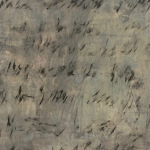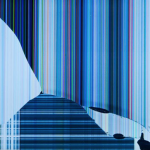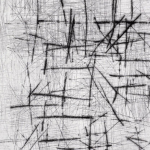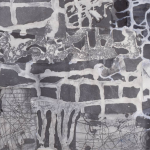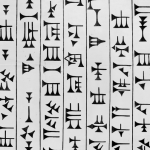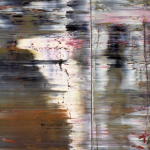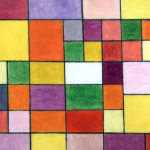Critical Code Studies and the electronic book review: An Introduction
Mark C. MarinoMark C. Marino explains the rationale for the Critical Code Studies Working Group, a six-week experiment in using social media for collaborative academic production. Marino also analyzes the first week's discussion, which focused on debates about what it means to read "code as text."
Framed: The Machine in/as the Garden
Timothy MortonTimothy Morton offers a critical reading of Roderick Coover's video Canyonlands: Edward Abbey and the Defense of Wilderness. In the video's stark modernist form, Morton writes, "the hydroelectric engine of human progress still hums." What's needed now, he suggests, is a "Goth remix."
HBO’s Deadwood and Serial Necessity: A Response to Sean O’Sullivan’s “Reconnoitering the Rim: Thoughts on Deadwood and Third Seasons”
Daniel WordenDaniel Worden's riposte to Sean O'Sullivan's piece on Deadwood argues that O'Sullivan's "formalist account does not acknowledge... Deadwood's connection to a kind of historical necessity that governs not just the show's characters but also the very structure of the show as a historical drama about the West on late twentieth-century cable."
Playing with Rules
David GolumbiaDavid Golumbia's response to Brian Lennon's "Gaming the System."
Abish’s Africa
Louis BuryAbish's Alphabetical Africa is pondered here, in a critifiction by Louis Bury. Bury's text is written - like the novel itself - under constraint: each critical query begins with a new letter of the alphabet. Culminating in "Zeugma," the essay explores the poetics of Abish's linguistic experiment from somewhere close to the inside. (Doug Nufer's Negativeland gets a similar - though more subtle - treatment in another Bury piece.)
Absences, Negations, Voids
Louis BuryExamining Doug Nufer's Negativeland, a constraint-based text, Louis Bury adopts the same constraint as the novel - an approach NOT dissimilar to his treatment of Abish's Alphabetical Africa. In this case, the constraint is a prohibition against sentences lacking "some form of negation" - a commitment not unlike the affirmation of negativity.
Riposte to “A [S]creed for Digital Fiction”
Kate PullingerKate Pullinger thinks the Digital Fiction International Network is too hasty in dismissing e-books as "paper-under-glass texts."
A [S]creed for Digital Fiction
David Ciccoricco, Astrid Ensslin, Jessica Pressman, Hans Kristian Rustad, Jessica M. Laccetti, Alice BellAn international group of digital fiction scholars proposes a platform of critical principles, seeking to build the foundation for a truly "digital" approach to literary study.
Between Play and Politics: Dysfunctionality in Digital Art
Marie-Laure RyanMarie-Laure Ryan argues that dysfunctionality in new media art is "not limited to play with inherently digital phenomena such as code and programs," and provides a number of alternative art examples, while also arguing that dysfunctionality "could [also] promote a better understanding of the cognitive activity of reading, or of the significance of the book as a support of writing."
R. M. Berry’s Riposte to Brian Lennon and Loren Glass
R. M. BerryR.M. Berry responds to Brian Lennon and Loren Glass by noting the crucial differences between the various forms of institutionalization that are endemic (or should be considered so) to their conversations on "The System."
Roderick Coover, Larry McCaffery, Lance Newman and Hikmet Loe: A Dialogue about the Desert.
Roderick CooverRoderick Coover, Larry McCaffery, Lance Newman and Hikmet Loe explore the question of how desert ecologies are shaped through creative expression and actions. They consider, among others, how works by Edward Abbey, Robert Smithson and William T. Vollmann offer models for engaging ecological questions through writing and art.



